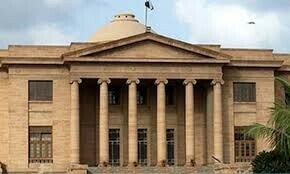 KARACHI, Nov 24: Speakers at a national literary conference on ‘Soomra period in Sindh’ said on Saturday that Sindh had been the homeland of peace-loving citizens who had never invaded others but proved tough defenders whenever their homeland was attacked.
KARACHI, Nov 24: Speakers at a national literary conference on ‘Soomra period in Sindh’ said on Saturday that Sindh had been the homeland of peace-loving citizens who had never invaded others but proved tough defenders whenever their homeland was attacked.
“Sindh has great potential to accommodate whosoever comes to her and those who did not absorb in its soil found themselves nowhere,” said Elahi Bukhsh Soomro, former speaker of the National Assembly while presiding over the opening session of the one-day conference.
Organised by the Sindhi department of Karachi University, the national conference was held at the arts auditorium.
The former speaker said the Soomra Dynasty dominated Sindh for 325 years (1026-1351 A.D.) but the people of Sindh relied on craftsmanship and art more than power and invasion, which was rampant elsewhere in the world, throughout their rule.
“At that time, Sindh was famous for its great carpenters, blacksmiths, the artisans and artists. Our land had no super warriors as heroes like many other nations had,” said Mr Soomro.
He said it was generally believed that the Soomros were Hindu Rajputs, however, it was yet to be established whether they were native Hindus or their ancestors had come from Arabian Peninsula or elsewhere. “History has to prove all this,” he said.
KU vice-chancellor Dr Pirzada Qasim said the land of Sindh had been livelier through centuries which cherished to have great civilisations and expanding frontiers at times. “Sindh was as huge as from here to Kashmir and at that time Hind (India) and Sindh was a popular term to differentiate India and Sindh,” he said.
He identified the Soomra period as one of the golden eras in the history of Sindh when people from this part of the world had proved themselves as one of the important nations of the world.
Pro-vice chancellor Dr Akhlaq Ahmed also described the Soomra dynasty as one of the bright chapters of Sindh’s history.
Dr Abdul Jabbar Junejo said the Soomra period had made great contributions in literature, music and culture, which was evident from the fact that Mirkhan Sheikhan of that era proved to be the first known poetess of Sindh.















































Dear visitor, the comments section is undergoing an overhaul and will return soon.